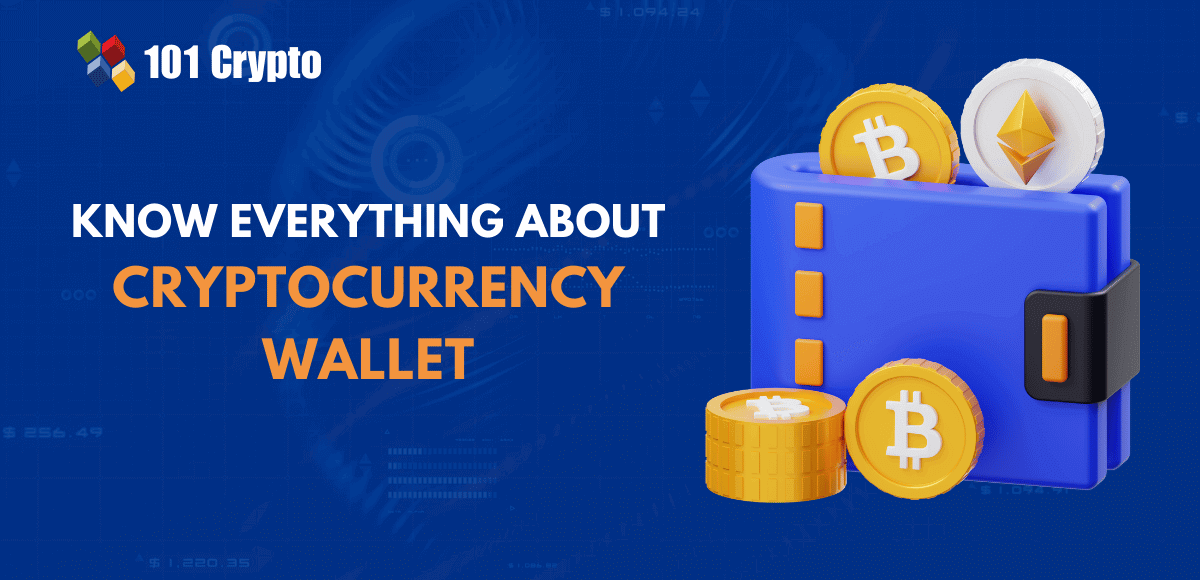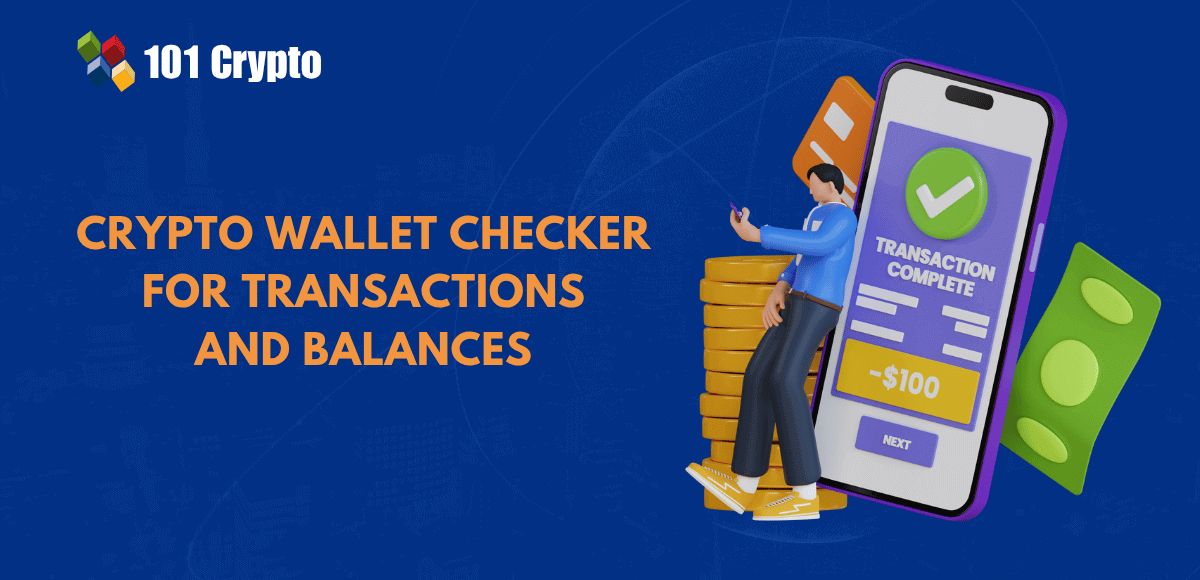Anyone planning to enter the crypto landscape might have many things on their mind, ranging from Bitcoin to latest innovations. Before choosing any cryptocurrencies to buy, you must learn about crypto wallets. The fundamentals of a cryptocurrency wallet explained for beginners will provide a clear impression of the different ways in which crypto wallets make interactions with cryptocurrencies easier. Many of you might have assumed that cryptocurrency wallets are special wallets assigned by crypto companies where you can store crypto assets. On the contrary, cryptocurrencies are not tangible like fiat currency which you can store in a purse or physical wallet. Let us learn about crypto wallets and how they work to store cryptocurrencies.
Gain deep insights on how the Bitcoin blockchain works with the Bitcoin Fundamentals Free Course.
Definition of Cryptocurrency Wallet
The first thing that you must know about crypto wallets is their definition. Awareness of the definition of crypto wallets ensures that you can choose the ideal solution according to your requirements. Cryptocurrencies don’t exist in a tangible form as they are present on a blockchain. People need a way to track the ownership of their cryptocurrencies, similar to the way in which a bank account indicates how much money you have in it.
Most of the answers to ‘what is a cryptocurrency wallet’ reiterate the fact that crypto wallets are software or hardware that helps in storing and using cryptocurrencies. You can also describe crypto wallets as a solution for providing visibility to the amount of cryptocurrency owned by users.
The best definition of crypto wallets suggests that they are applications which serve as wallets for cryptocurrencies. Rather than storing currency or cards, crypto wallets store the keys that you can use to sign for crypto transactions. At the same time, crypto wallets offer an interface to access crypto assets.
Prior to the arrival of crypto wallets, sending and receiving cryptocurrencies were manual tasks that required entering long phrases. With the help of crypto wallet applications, you can send or receive crypto assets from anywhere, anytime. The wallet charges a transaction fee for its services and enables flexible interaction with your cryptocurrencies.
Significance of Cryptocurrency Wallets
Just like any other currency, you can accumulate cryptocurrencies and use them for different transactions. The outline of crypto wallet benefits can help you understand how they play a major role in bring crypto assets closer to people and organizations. You can draw similarities between crypto wallets and a bank account which allows you to store and use fiat currency. As a matter of fact, crypto wallets are essential tools that enhance the practical applications of cryptocurrencies.
One of the most noticeable aspects which validate the significance of crypto wallets is their role in executing crypto transactions. You need a crypto wallet to send and receive cryptocurrencies as well as monitor your crypto asset balance. On top of it, you will also need a crypto wallet to connect with different types of decentralized applications. Another crucial factor that showcases the significance of crypto wallets is the facility to manage your private encryption keys used for crypto transactions.
Decoding the Way Crypto Wallets Work
The distinctive trait of crypto wallets is that they don’t store actual cryptocurrencies. On the contrary, crypto wallets hold the credentials you need to access the crypto assets. The various examples of crypto wallets show that they work with public and private keys. The public key infrastructure enables users to access and use their cryptocurrencies alongside ensuring security through cryptography. You can notice similarities between a private personal identification number used to access your bank account and a private key used to access cryptocurrencies on blockchain networks.
Crypto wallets work by holding the private key and transaction information of the user. The public keys stay on the corresponding blockchain like your account number that you can give to someone to send you money. The public-private key combination ensures that crypto wallets offer a secured approach to verify the balance and send or receive crypto assets.
Understanding the Variants of Crypto Wallets
Once you have learned about the fundamentals of crypto wallets, you must know about their different variants. You may come across two distinct types of crypto wallet, such as hot wallets and cold wallets. Hot wallets get their unique name from the fact that they are always connected to the internet and remain active. On the contrary, cold wallets are similar to cold storage facilities meant for long-term storage. Cold wallets stay disconnected from the internet and only require online connections when you use them for crypto transactions.
-
Variants of Cold Wallets
The two most common variants of cold wallets are hardware wallets and paper wallets. Hardware wallets are similar to USB sticks that store the user’s private key. You can use them by connecting to the internet and remove them after completing your transaction. The hardware wallet ensures a type of isolation when the user pulls it out, thereby offering the assurance of unparalleled security. Another notable variant of cold wallets is a paper wallet that is probably the simplest approach to store cryptocurrencies. With paper wallets, you can just write down your private and public keys on a piece of paper and store them in a safe location.
-
Variants of Hot Wallets
You will find three common types of hot wallets in the crypto market. The three types of hot wallets are online wallets, mobile wallets, and desktop wallets. Online wallets, or web wallets, are the most common type of crypto wallet that serves as an online platform to store the public and private keys of users. Desktop wallets store the keys required for crypto transactions in an app on the desktop system of users. The most convenient type of hot crypto wallet for users is a mobile wallet that helps in storing the keys on a mobile app.
-
Variants of Crypto Wallets Based on Custody
While hot and cold wallets serve as two broad categories of cryptocurrency wallets, you must also know the difference between a custodial and non-custodial wallet. Custodial wallet is one of the common variants that you will find in guides on cryptocurrency wallet explained as most of the popular crypto wallets are custodial in nature. The term ‘custodial wallet’ speaks a lot about the way they work i.e. the wallet takes custody of your cryptocurrencies. Custodial wallets are generally offered by crypto exchanges or custodians with the advantage of holding and interacting with your crypto assets.
The next big category of crypto wallets on the basis of custody is non-custodial wallets. With non-custodial wallets, you will have complete custody of the private keys for cryptocurrencies. In addition, you will also have to take the responsibility of securing your crypto assets in non-custodial wallets.
What are the Popular Crypto Wallet Examples?
You can come across different types of cryptocurrency wallets with unique approaches to serve the benefits of interacting with cryptocurrencies. The foremost additions among examples of crypto wallets in the hardware wallet category include Ledger and Trezor. Both these providers have emerged as the top hardware wallet options with a broad range of features. The prominent examples of hot wallets include Coinbase, Trust Wallet, and MetaMask. You can access the hot wallets in different forms, such as web app, desktop app, and mobile apps.
How Can You Pick the Ideal Wallet for Your Needs?
The most common choice of crypto wallet for new users is a web wallet on popular crypto exchanges that helps in buying and selling cryptocurrencies. However, it may not be the best choice for other users. You must pay attention to different factors while choosing the ideal crypto wallet for your needs.
The first thing that you need to check while choosing a crypto wallet is the type of wallet that you will need. Hardware wallets offer the most secure approach to access cryptocurrencies and have doubts regarding the security of web apps, desktop apps, and mobile apps. On the other hand, hardware wallets create problems in accessibility and usability.
The biggest priority of hot cryptocurrency wallets is security. While the list of hot crypto wallet benefits emphasizes a lot on accessibility, security of your cryptocurrencies will always be important. You should choose crypto wallets that offer stronger authentication features such as multifactor authentication.
The choice of a crypto wallet will also depend on the number of cryptocurrencies it supports. On top it, you should also check whether the crypto wallet serves seamless integration alongside support for different cryptocurrencies. You must not forget to evaluate the level of customer support excellence offered by the wallet providers.
Final Thoughts
The introduction to crypto wallets reveals a lot about their importance in the continuously evolving crypto landscape. As the world recognizes new ways to embrace crypto adoption, the curiosity about ‘what is a cryptocurrency wallet’ continues growing. The steady rise in use of crypto wallets indicates a plausible growth in crypto usage, a trend which will expand in future. However, you must pay attention to certain factors while choosing crypto wallets, such as security, accessibility and the intended use cases. Discover more insights on crypto wallets and learn how to use them as a crypto professional now.
Disclaimer
The article should not be taken as, and is not intended to provide any investment advice. Claims made in this article do not constitute investment advice and should not be taken as such. 101 Crypto shall not be responsible for any loss sustained by any person who relies on this article. Do your own research!







